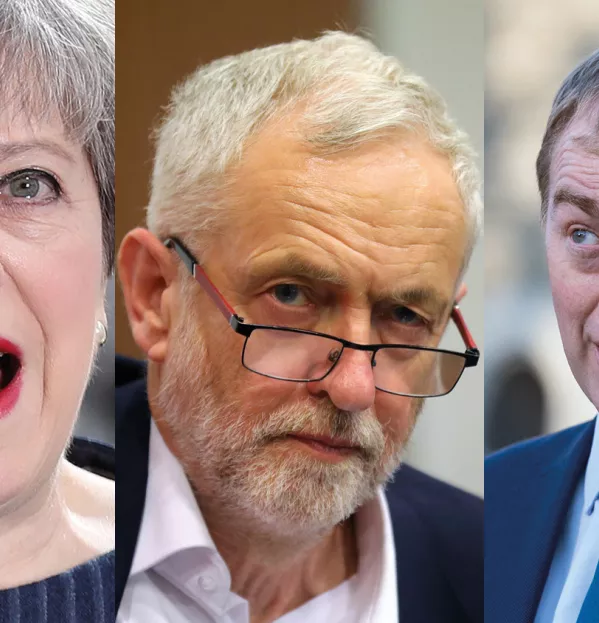What will the snap general election mean for schools?

Theresa May made education the focus of her first major domestic policy speech as prime minister just seven months ago.
But the subject did not feature once on Tuesday as she called a snap general election on the steps of Downing Street.
Teaching union leaders have raised concerns that important education issues, from squeezed budgets to teacher workload and recruitment, will barely feature in what is likely to go down as the Brexit election, leaving schools as under-funded poor relations.
Their fears may be justified by an Ipsos MORI poll from February, which found that only 1 per cent of the public think that education is the biggest issue facing Britain today.
But whatever happens over the next seven weeks, the election result could prove to have a profound effect on our schools system for generations to come.
The mere fact the contest is taking place could leave headteachers in limbo about their budgets and curriculum.
School funding has come closest to gaining traction with the public. With heads lobbying parents and backbench Tory MPs raising the issue in Parliament, the issue has broken through onto national and local front pages.
A force for change
Kevin Courtney, general secretary of the NUT union, says it would be “an absolute and total disgrace” if the government did not publish its response to its outstanding consultation on the proposed national school funding formula before the election.
He has promised to force the issue on the election agenda, and Labour and the Liberal Democrats will seek to do the same.
Neil Carmichael, the Conservative MP and chairman of the Commons Education Select Committee, expects the issue to play “quite a big role” in the campaign.
He thinks there will be a new funding formula “that will take into account some of the issues that have been raised”.
But for others, a re-elected Conservative government could be in a stronger position to see the formula through unchanged.
Russell Hobby, general secretary of the NAHT heads’ union, says: “An increased majority could give it room to pursue policies that are not as popular with some backbenchers.” But he fears the election could still lead to delay. Last year, the introduction of the long-promised national funding formula was pushed back a year to September 2018 after the change of prime minister. For Hobby, another election “casts doubt on the timetable, at the very least”.
The election could also lead to the removal of the biggest barrier to one of Theresa May’s signature policies creating new grammar schools - or kill the policy altogether.
It is an issue Carmichael thinks will be “peripheral” in the campaign. As a prominent sceptic of the plans for more academic selection, he is unlikely to be shouting about it. But expect it to be a central part of his party’s election manifesto, for good reason.
Pro-grammar plaform
In their 2015 election manifesto, the Tories promised to allow good grammar schools to expand, but May wants to go much further.
Her problem is that, because she did not have an electoral mandate, her opponents in the House of Lords could have claimed a constitutional justification for throwing the plans out.
If elected on a grammar school platform, this hurdle is removed. Indeed, Hobby believes “it will give them the opportunity to extend the policy more than they might have done”.
Conversely, if the Conservatives lose the election, both Labour and the Liberal Democrats would scrap the whole idea.
Many in Westminster have perceived education secretary Justine Greening as relatively unenthusiastic about grammar schools, and the policy has been largely driven by 10 Downing Street. If the Conservatives were re-elected on a pro-grammar platform, could a post-election reshuffle see her replaced by a more enthusiastic grammar school cheerleader?
But even the debates, promises and manifestos we see between now and 8 June may not show us exactly where we are heading.
As Geoff Barton, general secretary of the Association of School and College Leaders, says, manifestos are a “cocktail of different issues”, and “not all the policies have the support of the British people”.
And as the Tory 2015 pledge to force children who do not reach the “required standard” in their Sats to re-sit at secondary school shows, not all policies in a winning manifesto are guaranteed to be implemented.
You need a Tes subscription to read this article
Subscribe now to read this article and get other subscriber-only content:
- Unlimited access to all Tes magazine content
- Exclusive subscriber-only stories
- Award-winning email newsletters
Already a subscriber? Log in
You need a subscription to read this article
Subscribe now to read this article and get other subscriber-only content, including:
- Unlimited access to all Tes magazine content
- Exclusive subscriber-only stories
- Award-winning email newsletters